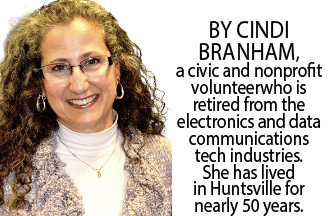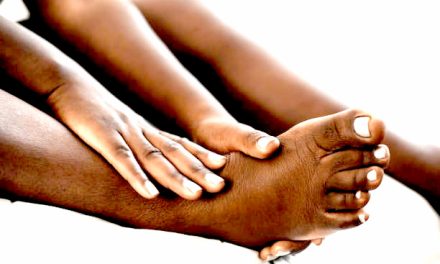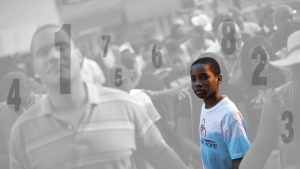By Aria Brent
AFRO Staff Writer
abrent@afro.com
On Dec.1 Black Mental Health Alliance (BMHA) welcomed members of the Baltimore community to the World Trade Center for the Dr. Maxie Collier Awards Ceremony and 40th Anniversary Gala. Mental health coach, Jay Barnett, Ph.D was the keynote speaker and this year’s theme for the event was “honoring our past, transforming our today, defining our future.”
The nonprofit organization has served Baltimore’s Black community through their mental health and social advocacy for the last four decades. They also provide a setting that leads and promotes culturally grounded approaches to behavioral health access, integration of behavioral health services, and quality care in the Black community. Barnett discussed how necessary culturally competent organizations like BMHA are when balancing your mental health and faith.
“My faith has been so connected to my mental health journey. Growing up in the South you pray about it,” explained Barnett. “It was not protocol to ask for a counselor because to say you were in need of a counselor meant that your walk was questioned. ‘Do you really know him?’ Let me be clear, you can know him and still be in need of help.”
This year’s award ceremony recognized mental health experts, advocates and specialists who have dedicated themselves to assuring the Black community has access to proper mental health resources. There were a total of 10 honorees that were awarded The Phoenix Arising Award including Jojo Simmons, Subramonianpillai Teal, Dr. Melissa Clarke, Obari Adeye Cartman, Ph.D, T-Kea Blackman, Bruce Purnell, Ph.D, Dennis “Ausar” Winkler, Jr., Ph.D, Dr. William B. Lawson, Linda Diaz and Joy Harden Bradford, Ph.D.
These honorees are keeping the torch that BMHA founder, Dr. Maxie T. Collier lit ablaze. The history of how BMHA came into existence was shared by Roger Clark, the son of BMHA founding member, Senator Shirley Nathan- Pulliam.
“One day in the Spring of 1983 Dr. Maxie Collier and Fikre Workneh surprised me and came to pay me a visit in my office at Lutheran Hospital. They informed me they needed help to start a mental health organization,” Clark recalled on his mother’s behalf. “Fikre had been doing extensive research and the results showed there was a high level of misdiagnosis and pure cultural treatment of Black men.When we dove deeper into the cultural aspects it was clear that they were onto something.”

Andrea Brown, executive director of BMHA also briefly spoke about the organization’s founding, while further explaining the motive that has kept them dedicated to the work that they started all those years ago.
“Who would’ve thought that back then, there was a meeting of minds that would bring us to this day,” remarked Brown.”For 40 years we have been doing what we set out to do and we’ve changed the game. While much has changed we also know that much has not. Thus we are still here doing this work, even more than before.”
In their 40 years, the BMHA has become a well respected and recognized organization across the state. The impact that BMHA has had on the city of Baltimore is undeniable and their constant advocacy for mental health has remained relevant to the community.
“The work that the Black Mental Health Alliance does in driving this agenda around mental health and telling not just our children, but all of us that it’s okay to not be okay is so important,” stated City Council Member Zeke Cohen (MD-1). “We know that we are a city that is hurting but we also know that we are a city that is healing. This issue of trauma cuts at all of us, and it impacts all of our families. It impacts every single one of us but in a city like Baltimore where trauma is so disproportionately located in our Black and Brown communities we have to do more to help folks heal.”
“We know that we are a city that is hurting but we also know that we are a city that is healing. This issue of trauma cuts at all of us, and it impacts all of our families. It impacts every single one of us but in a city like Baltimore where trauma is so disproportionately located in our Black and Brown communities we have to do more to help folks heal.”
Mental health is a lot more complex than many people believe it to be. Barnett explained what mental health is and the many avenues of your life it affects.
“Mental health is life in motion. Mental health is how you wake up in the morning.Mental health is how you drive in your car and traffic seems to be out of your control. It’s road rage and all those different things,” stated Barnett. “How you go to sleep at night, how you connect with your spouse, how you connect with your children– all of those things are mental health. No one has realized that when God created us he had mental health in mind because he made us trying beings. Mind, body and spirit, that’s mental health.”
Congratulations to the Black Mental Health Alliance for 40 years of helping and healing the Baltimore community. If you’re interested in any of the services offered by BMHA visit blackmentalhealth.com.
The post Black Mental Health Alliance holds their Dr. Maxie Collier Awards Ceremony and 40th Anniversary Gala appeared first on AFRO American Newspapers .











